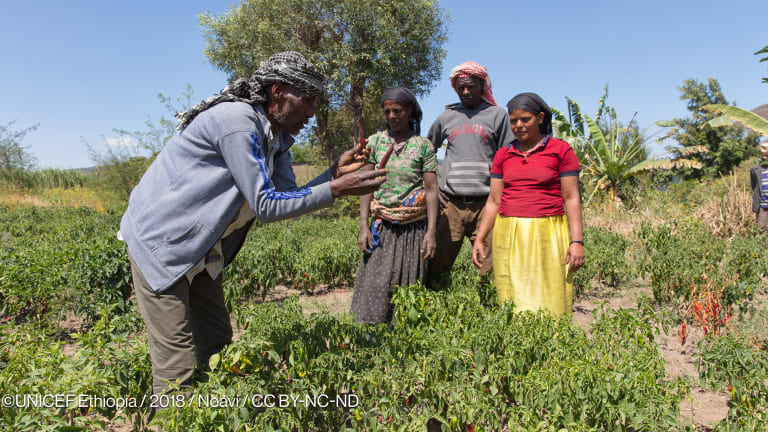
MADRID — Depending on how it is pursued, the global shift toward more climate-resilient agriculture and food systems could vilify farmers and disrupt their livelihoods, or it could put them at the forefront of building better systems than exist today.
Policymakers and advocates are trying to understand what the components of that “just transition” would be and to draw on lessons from other sectors that have seen top-down policies spark public backlash.
More on food systems transformation:
► The environmental impact of balancing the food system is still unknown
► Funders are searching for food systems of the future
► Food system transformation needs everyone at the table, experts say
Agriculture and food systems are at the epicenter of the global climate change challenge.
On one hand, the sector contributes an estimated 20% to 30% of global greenhouse gas emissions when the full range of activities related to production and consumption are taken into account. On the other hand, agricultural systems are highly vulnerable to climate change impacts and face a daunting adaptation challenge. As a result, agriculture and food systems must shift away from high carbon emissions while simultaneously adapting to a warming world.
With those dual imperatives in mind, climate advocates are pushing policymakers and industry to ensure those changes happen in a way that improves farmers’ livelihoods, instead of disrupting them.
“To ensure the resilience of food production in the face of the climate crisis, and to avert the climate crisis itself, food systems must convert from industrial agriculture techniques towards sustainable land management approaches such as agroecology and agroforestry,” according to a new report from ActionAid.
“A just transition in agriculture must be undertaken in a way that works for farmers and workers, not against them,” the report reads, which makes the case for involving farmers in transition plans and for providing them with sufficient support, rather than imposing top-down policies.
The report draws on difficult lessons from other attempts to transition industry toward climate-friendly policies, such as France’s imposition of a carbon tax on fuel prices. Instead of galvanizing public support for climate action, that policy prompted public protests and spawned the “mouvement des gilets jaunes” — or the yellow vest movement.
To avoid such a negative public reaction, a just transition in agriculture should emerge from participatory planning that involves farmers and groups that are currently marginalized from food production policy, according to the report. It could also involve shifting subsidies away from high-polluting industrial inputs and toward supporting farmers, said Teresa Anderson, climate policy coordinator at ActionAid.
Zambia, for example, spends 75% of its agriculture budget on fertilizer subsidies, Anderson said. Synthetic nitrogen fertilizer is both fossil fuel-intensive to produce and a threat to soil fertility in the face of changing climatic conditions. These fertilizer companies have come to be known as the “Exxons of Agriculture,” according to the report, and have developed ties with the oil and fracking industries.
“Extension agents usually find it easier to provide farmers with packages of fertilisers and hybrid seeds, rather than give advice on beneficial agroecological practices that are appropriate for the local soil and climate conditions,” the report says.
According to some advocates, shifting those subsidies from industrial agriculture corporations to farmer support services could help bring about a bottom-up transformation of food systems that allows farmers to drive policy changes instead of resisting them.








